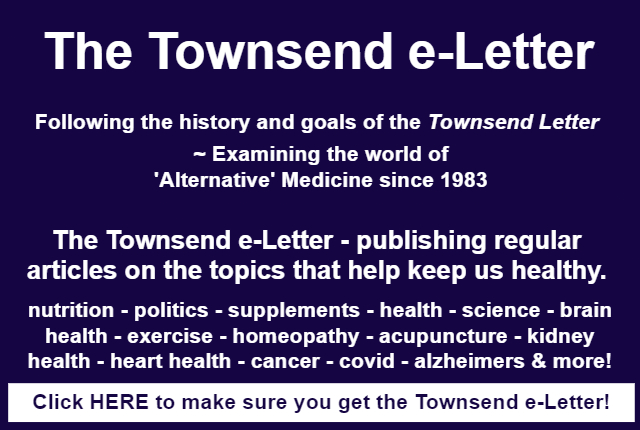by Tricia Keffer
Years ago at my work place, my coworker told me she had a hysterectomy. No woman before or since has ever said that word to me. No one has ever discussed it. No news media outlets talk about it. And, no one in the natural health and alternative medicine community has produced a newsletter about it. Not to my knowledge anyway and I keep up with the news. Strange isn’t it, that the most common surgery prescribed for women is a pink elephant in the room?
I swore off doctors after a dermatologist overdosed me with antibiotics for acne. I suffered severely for decades with the consequences. I knew I would only go to a hospital in an emergency—perhaps a car accident. Well, driving was involved but not via accident. I injured my lower back and through a series of unfortunate decisions, I was in a hospital for a D&C. I had no clue nor knowledge about a hospital other than to ask for a second opinion.
The alleged report (being disputed) was cancer. They denied my requests for a second opinion and bullied me into a hysterectomy. I found out later this a common tactic. I was told by the doctor there were “no long-term side effects” for a hysterectomy. That’s a false statement. There are many myths perpetrated on women about their health care and hysterectomy is the one we need to talk about now.
After rushed through an unnecessary surgery, I began to read through my herbal magazine and alternative websites. I was shocked to find no information about hysterectomy. I searched through books, publications, and well-known videos—nothing. It’s barely even mentioned. Only one website, the HERS Foundation would even say the word. Let me tell you. A hysterectomy is a devastating surgery!
I discovered the most common myth is the “surgical menopause” phrase. As a marketing and salesperson myself, I saw through this right away. It’s a sales pitch to negate a women’s concerns. What doctor in her/his right mind would say the real word? Castration! There are a few technical definitions to point out here. There are different types of hysterectomies: leave a few parts but take the others—so they can technically not call it castration. They may leave your ovaries or not. They may take one and just the uterus. Either way, you’re not having another baby and you will not be having a menopause.
In order to have menopause, you must have all of your organs. While they change function during a woman’s entire lifetime, they are not unnecessary nor a curse.
The fact is that one in three women over 60 will have a hysterectomy or have it recommended. The average surgery costs $25,000. That’s a cash cow surgery worth 16 billion a year. It’s not generally scheduled on weekends—which begs the question is it emergency surgery or elective? Florida is the de facto capital for hysterectomy due to the age demographics and number of doctors.
What are the side effects? They can be different for each woman. It always depends on your age and health at the time of the hysterectomy. Each person has their own predispositions for health concerns and diet. The younger you are, the worst it will be because you need your hormones to build bone. You will be more likely to experience brittle bones and to break them when you fall, which could lead to more hip or joint replacement surgeries.
The brain and mental side effects are numerous. Women are at an elevated risk of all cognitive brain and mood disorders, such as Alzheimer’s, dementia, memory loss, sleep loss, severe mood swings, changes in personality, and even suicide. The divorce rate is higher as well. I would hypothesize that the stress of these physical changes takes a toll on a relationship. Let’s face it. Marriage is a voluntary arrangement. Many men simply leave.
The joint pain is terrible. It was terrible for me. I woke up with pain in my hands like a knife going through them. Without proper hormones, there is little lubricant in the joints; and they begin to fail. In my experience, losing your hormones so drastically hurries your life to the grave. Think about it. The hormones are the body’s messenger system. While we have a finite lifespan, it’s our bodies that gradually slow down this messenger system until they signal our final passing. Hormones do not just build a new human; they rebuild you every day.
The dryness is awful. There is no amount of cream, lotion, oils that will fix it. Most (if not all) of our outer symptoms begin from within. It’s our hormones that keep us lubricated and moving. It’s like a car. It needs an oil change on the inside to keep it humming. I’m not just talking about a little dry skin. I had beautiful oily skin and hair before this surgery, and I dried up like a raisin. It’s severe all over my body. It’s not just uncomfortable; it takes a toll on self-esteem too.
Which leads me to the last part of my story. The doctors cannot handle complains. They don’t want to hear about it. They dismiss and belittle your symptoms; and if you insist, they’ll tell you to go to therapy—which many women do need afterwards too. The suicide rate goes up for women after hysterectomy and not just because of the emotional loss but because of the constant pains in the body.
There are more adverse effects of hysterectomy, but the worst one is not talking about. I’m so disappointed in my alternative community. We should be talking about it and helping women (640,000) per year with natural supplements and diet—not more drugs. In the end, I did not have cancer. Now I have to once again deal with the consequences of a treatment.
We must demand informed consent for hysterectomy surgery in every state. There are alternatives if a surgery is necessary. Those alternatives are not just natural ones either. If men were “castrated” at the rate of 640,000 per year, would an alternative be found? If men were told to “let go of your fears, it’s just surgical menopause,” would they do it? Cancer rates are the same in the reproductive system for women and men. Yet women are told to have a PAP and inspection of the genitals on a yearly basis. Why isn’t there a PAP for men? There should be because early detection is important, right?
We must say the hysterectomy word. We must talk about the adverse effects. We must help women like myself because it’s not over nor too late. I’m making a plea for the natural health community to step up to plate and discuss this very important health topic.
About the Author
Tricia Keffer earned degrees in psychology, art, and a master’s degree in landscape architecture. Her first business was a portrait and wedding studio in Florida with traveling sessions to Paris, France. Her present career is landscape design. She is a strong and well-educated woman who advocates for others, like herself, who find themselves making poor health care choices because they lack the education and information needed to make a truly informed choice.


